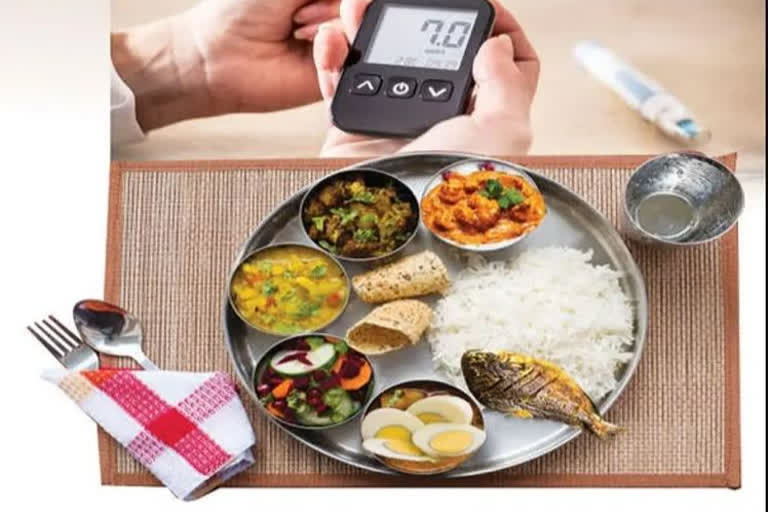Hyderabad: A recent study revealed that carbohydrates account for more than 60 percent of the diet consumed by Indians. According to nutritionists, carbs should not make up more than 40 percent. Meanwhile, the average protein intake is 12 percent, which should be increased to at least 40 percent.
Most of us cannot control hunger pangs on seeing our favorite food. We do not stop until we eat them. Medical experts say that giving in to excessive cravings is damaging to health. They warn that there is a risk of an increase in blood glucose if you consume foods with a high glycemic index. It is better to eat within a limit, in specific time intervals, advises Dr. PG Sundararaman, Senior Consultant Medical Endocrinologist at Apollo Spectra Hospital, Chennai.
What foods to eat to prevent diabetes? What changes should diabetics make in their diet? Dr. Sundararaman discussed several such interesting details in his interview with Eenadu.
Our body generally needs two types of nutrients. One is micronutrients. These are sufficient in small quantities.
The second type is macronutrients. Carbohydrates, proteins, and fats fall into the second category. Carbohydrates are easily digested and rapidly release glucose into the blood.
Food is digested and converted into glucose, which enters the cells and becomes energy. In order for this process to happen smoothly, an average person should make it a habit to eat three meals a day. Besides, these meals should be eaten at fixed intervals.
Breakfast, lunch, and dinner should be taken at the same time every day. Eating before 7.30 pm is healthy. If you follow the right timings, glucose levels in the blood can be controlled.
Why doesn’t insulin work?
Glucose released by the food we eat must be delivered to the cells as quickly as possible. Insulin does that. If you eat a lot of carbohydrates, the production of glucose rises and thus, a high dose of insulin is needed to send it quickly into the cells.
This requires a lot of effort. Thus, glucose remains in the blood for a long time. This puts a burden on the pancreas and inhibits insulin production.
Gradually, the insulin function decreases. This increases the glucose levels in the blood and leads to diabetes. Vitamin B12 deficiency occurs when the body does not get enough vitamins and minerals. That's why diabetics should consume more fresh vegetables and leafy greens.
Whole grains are the right choice
Foods that contain more than 50 percent carbohydrates are not good for the body. Eating polished rice and wheat can release glucose into the blood quickly. With whole grains, millets, vegetables, and fruits, glucose is released slowly into the blood. They are also high in fiber and good for health.
Six meals a day is ideal for diabetics
All metabolism within the cells is done with the help of proteins. Proteins are what the muscles need. These are also useful for the accumulation of glucose in muscle cells. Non-muscle cells require insulin to transport glucose.
Make it a habit to walk every day. The burden on insulin can be reduced by increasing muscle strength through regular exercise and walking. Blood sugar levels can be kept in check through physical activity.
Working hard and eating in moderation should be our motto. If you are taking insulin shots, you should eat light meals three times a day and moderately heavy meals three times a day.
Make sure not to gain weight
Three factors must be considered before eating. First, insulin sensitivity, that is, does the food we eat stimulates the pancreas to release insulin? Second, insulin secretion, that is, how much insulin is produced if stimulated? And third, glucose disposal time, that is, how quickly the glucose released into the blood can be sent to the cells.
Considering these factors, it can be concluded that no one diet suits everyone. The composition of food should be varied. By taking these necessary precautions, people can keep diabetes at bay.



